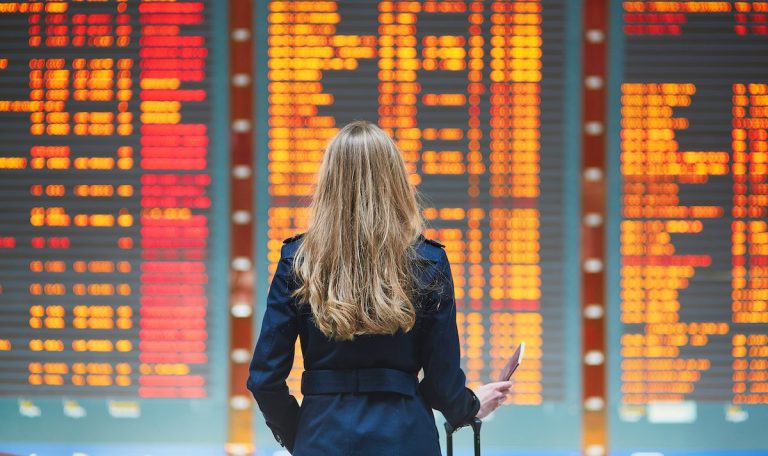Airlines’ Descent Into Logistical Chaos Puts Focus on Refund Solutions

After years of disruptions, airlines still haven’t gotten the “hassle-free” part of refunds right.
While the pandemic battered the travel industry as a whole, airlines especially still remain vulnerable to more mundane factors like the elements, as well as the pitfalls of legacy operational systems and compounding failures to digitize and modernize internal systems.
A winter storm that swept the country during the height of the 2022 holiday shone a spotlight on these issues, as it caused Southwest Airlines alone to cancel more than 15,000 flights, leaving countless swathes of passengers just trying to get home and see their families stranded across the country with little recourse and fewer real-time solutions.
Customer refunds are required when flights are canceled for any reason, but airlines can offer vouchers and credits for future travel instead of cash refunds, which they frequently do in order to keep working capital available for operational needs. This “cash-equivalent” situation often leads to further frustrations for travelers.
Findings in the PYMNTS’ research report “Merchant Refund Policies: Keeping Travel and Entertainment on Track” showed that seamless, easy-to-use cancellation and refund policies are key to delivering a positive customer experience.
Southwest is finding this out in real time. The airline’s 15,000 canceled flights in a single week are nearly double the amount its competitors United Airlines and Delta Air Lines canceled in all of 2019 combined.
As reported by PYMNTS, Southwest has since created a one-stop dashboard for waylaid customers to submit their requests for reimbursements and refunds.
‘Just Plane Smart’
A public letter sent New Years’ Day by the Southwest Airlines Pilots Association (SWAPA) union took aim at the company’s outdated technology and lack of investment in key innovations across digital.
“Herb Kelleher once said that his greatest mistake was not embracing and investing in technology,” stated the SWAPA letter. “This was a prescient warning to his successor, but it was one that his successor chose to essentially ignore for 20 years.”
“How did we go from the most stable and profitable airline in history to the greatest meltdown in airline history?” the letter went on to ask. “…Systemwide meltdowns at Southwest Airlines have been increasing in frequency and magnitude over the past 15 years.”
For a company whose corporate slogan was once “Just Plane Smart,” the time appears to be ripe to re-examine priorities and spending levels for technology improvements.
Southwest isn’t alone in its troubles.
Other carriers were on the hook for over half a billion dollars in refunds to their customers in 2022 as a result of travel cancellations and significant disruptions under new U.S. Department of Transportation (DOT) regulations.
Delta alone has issued $6 billion in refund-equivalents to 11 million travelers since 2020.
White House Watching
Getting travelers their refunds and credits in real time is shaping up to be a 2023 priority for the airline industry and its federal regulators.
Flight cancellations are enough of an inconvenience that customers shouldn’t also have to wait months to be appropriately compensated for their troubles or forced to haggle with customer service staff.
That’s according to the DOT, whose leader, Transportation Secretary Pete Buttigieg, is investigating Southwest to determine whether the airline is meeting its legal obligations to disrupted travelers.
In a public letter to Southwest CEO Bob Jordan, the transportation secretary called the airline’s situation “unacceptable” and noted that the cancellations and significant delays affecting 59% of Southwest’s scheduled flights were due to circumstances squarely “within the airline’s control.”
According to the letter, Southwest must provide refunds within seven business days if a passenger paid by credit card, and within 20 days if a passenger paid by cash, check or other means.
New research in PYMNTS’ “The Disbursement Satisfaction Report 2022” found that more than two in three (67%) consumers would be encouraged to continue doing business with organizations that offered “instant disbursements.”
Southwest Airlines Chief Commercial Officer Ryan Green indicated Dec. 28 that it may take several weeks to repay customers, but the airline is ready to cover costs incurred by travelers forced to make alternative travel plans as well as pay for shipping customers’ baggage to them.
“For too long, airlines have skirted federal rules requiring them to provide refunds to passengers,” wrote a trio of Democratic senators in November, including Chairwoman of the Senate Commerce Committee Maria Cantwell, in a public letter to the DOT.
A separate, Dec. 27 letter from Senate Commerce Committee members called on Southwest to fairly compensate travelers, noting that the airline “is planning to issue a $428 million dividend next year — the company can afford to do right by the consumers it has harmed,” going on to say that, “as Southwest executives have acknowledged, the mass cancellations yesterday were largely due to the failure of its own internal systems. As such, those cancellations should be categorized as ‘controllable.’”
In response to growing frustrations with the airline industry’s quality of response to disruptions, the DOT has created an “easy to-read, comparative summary information on the services or amenities that each of the large U.S. airlines provide.”
The department dashboard offers a framework for industry actors looking to revamp their own refund policies and modernize their processes while at the same time educating customers around the options available.